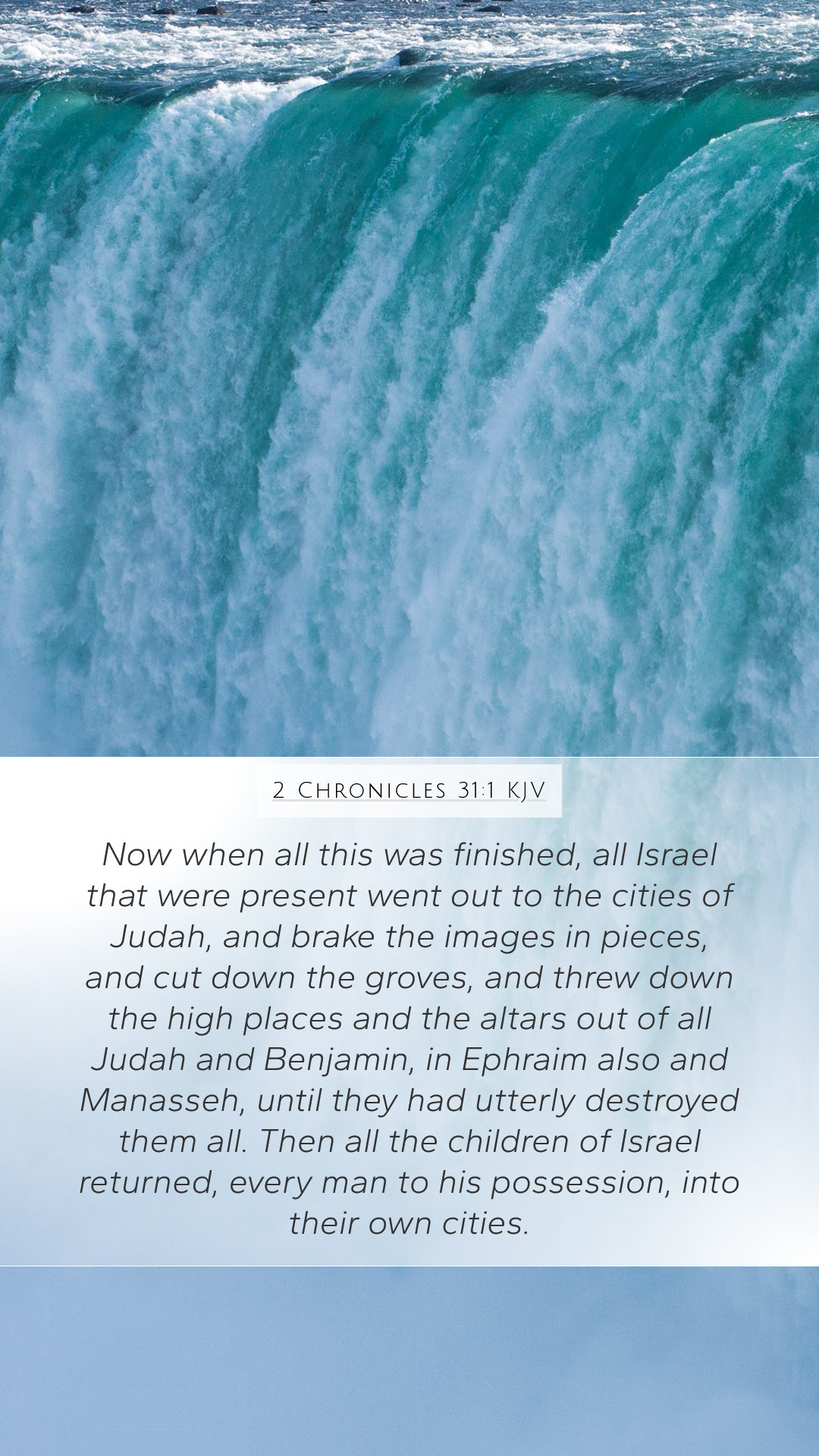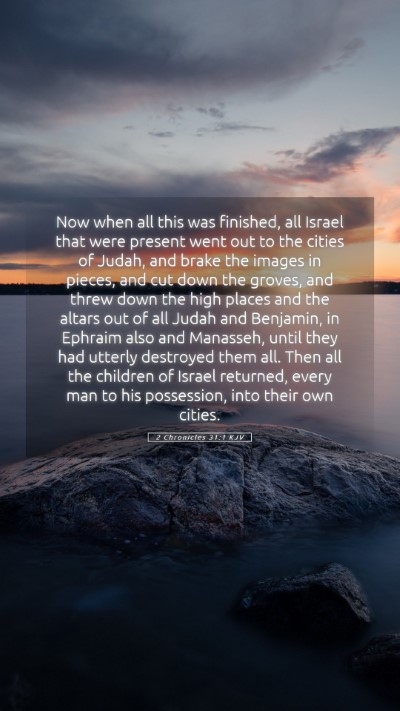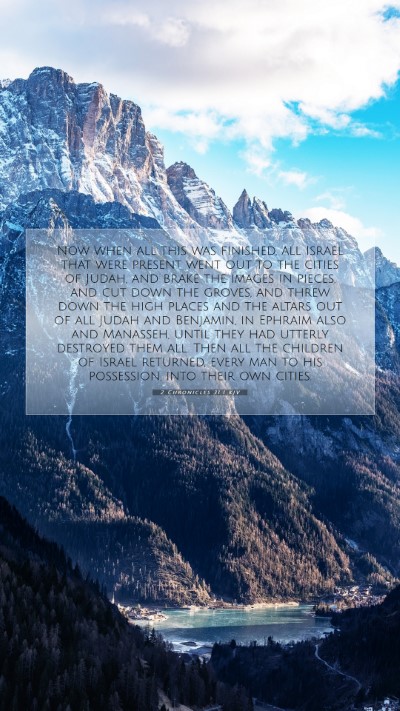2 Chronicles 31:1 - Bible Verse Meaning and Commentary
Bible Verse: 2 Chronicles 31:1 states, "Now when all this was finished, all Israel that were present went out to the cities of Judah, and brake the images in pieces, and cut down the groves, and threw down the high places and the altars out of all Judah and Benjamin, in Ephraim also and Manasseh, until they had utterly destroyed them all. Then all the children of Israel returned, every man to his possession, into their own cities."
Bible Verse Explanation
This verse marks a significant moment in the history of Israel as it reflects the restoration of true worship and the subsequent reforms initiated by King Hezekiah. The actions taken by the people represent a collective effort to rid the land of idolatry and ensure that the worship of Yahweh was reinstated.
Understanding 2 Chronicles 31:1
- Contextual Background: The reformation led by King Hezekiah aimed to turn the people back to God after a long period of idolatry.
- Collective Action: The passage highlights the unity among the people of Israel as they worked together to eliminate pagan worship practices.
- Symbolism of Destruction: The act of breaking images and destroying high places symbolizes the rejection of false gods and a commitment to the true God.
- Return to Possessions: The verse concludes with the people returning to their homes, which marks a return to order and peace after a period of religious turmoil.
Commentary Insights
Matthew Henry's Commentary
Matthew Henry emphasizes that the actions taken by the Israelites indicate a genuine revival in their hearts. He notes that the removal of idols was essential for the restoration of true worship and that the people's enthusiasm was key to the success of this revival. Henry points out that these reforms were not merely external but reflected a deeper spiritual change among the people.
Albert Barnes' Commentary
Albert Barnes provides insights into the historical significance of these actions. He discusses the importance of Hezekiah's reforms within the larger narrative of the Israelites' relationship with God. Barnes remarks that the people's commitment to destroying idols revealed their recognition of the holiness of God and the need to cleanse their land from corruption.
Adam Clarke's Commentary
Adam Clarke highlights that the verse showcases a significant transformation in the social and religious landscape of Judah. He notes that the destruction of idols was more than a physical action; it was a spiritual assertion of loyalty to God. Clarke also connects these reforms to earlier prophecies, indicating a fulfillment of God's desire for His people to return to Him wholeheartedly.
Application of 2 Chronicles 31:1
In applying this verse to our lives, we can reflect on the importance of purging our hearts and lives of anything that distracts us from our commitment to God. Just as the Israelites undertook a thorough cleansing of their worship practices, we too can examine what modern 'idols' may exist in our lives and actively remove them in pursuit of a more dedicated spiritual life.
Additional Insights
- Spiritual Cleansing: The call to action reminds believers that spiritual renewal often requires a decisive break from sinful habits.
- Community Effort: The collective actions of the Israelites signify the power of community in pursuing righteousness.
- Restoration of Worship: This passage encourages the faithful to remember the importance of true worship and community in their spiritual journeys.
Cross References
- 2 Kings 18:1-4 - Hezekiah's reforms and removal of high places.
- 2 Chronicles 29:1-11 - Hezekiah's initial actions to cleanse the temple and return to proper worship.
- Exodus 20:3-5 - God's command to have no other gods before Him.
Conclusion
2 Chronicles 31:1 is not just a historical recount but a powerful reminder of the necessity of spiritual reform and the commitment to true worship. Understanding this verse through various commentaries offers valuable insights that enhance our Bible study experience, enriching our understanding of Scripture and its application to daily life.


